KIRKHOPE. Church valley. Old English hop ‘valley among hills for summer grazing, or place of refuge’. Site of St Gordian’s Kirk.
UGLY GRAIN BURN. Probably Owl tributary. Old Norse ugal ‘owl’ and grein ‘branch’.
DOLLAR LAW. Maybe French douleur ‘pain or grief’. Unlikely to be Gaelic dol air ‘ploughed meadow’ as in Clackmannanshire town. Old English law ‘hill’.
LANGHAUGH. Long meadow. Old English halech, ‘flat meadow by a river’.
POSSO. The Source of Manor suggests Old Welsh poues ‘peaceful place’.
GLENRATH. Glen of the quarter year. Gaelic gleann ‘valley’ and raith ‘season or quarter year’.
WOOD HILL. Probably Woden’s Hill after Norse God Odin. This moraine in the heart of the valley is crowned with an iron age fort, inexplicably called MacBeth’s Castle.
CANADA HILL. Perhaps top of the rounded hill. Gaelic cean na, ‘head of’, and Scots dod, ‘rounded hill’. (Doddie ‘hornless bull or cow’).
CASTLEHILL. From the 15th century tower built by the Lowises of Manor.
GLENTERNIE. Gaelic gleann ‘valley’, Scots tern ‘gloomy’. The Glenternie burn appears on a plan of 1781.
THE GLACK. Hollow. Gaelic glac ‘hollow’ or ‘narrow valley’.
CAVERHILL. Enclosure hill. Old English ceofor ‘enclosure’.
HASWELLSYKES. Probably hazel stream. Old English syke ‘stream or rill’.
CADEMUIR/KAIDMUIR. The big battle. Probably Gaelic cath ‘battle’ and mòr ‘big’. Professor Veitch suggests that King Arthur’s seventh battle was fought here.
HUNDLESHOPE. The Source of Manor suggests Hounds-well-hope, incorporating Old English hop ‘valley among hills for summer grazing’. Well indicates a water source not healthy dogs.
CROOKSTON/CRUKSTON. Hook farm. Scots cruick ‘hook’ and toon ‘village or farmstead’.
BELLANRIGG/BELLUMRIGG. Village on the ridge. Gaelic baile an ‘village on’, Scots rig ‘ridge’.
THE SWARE. hollow between two hills. Old English swyre ‘hollow’.
THE POPPLES. ? Corruption of Peebles??
As to the name ‘Manor’ or ‘Manner’, in his book ‘The Borders’ Alistair Moffat writes, ‘The name of Manor is from the Old Welsh ‘Maenor’ and it had a specific and recorded meaning. A maenor was a collection of farms which formed a natural geographic, economic and administrative unit.’ I wonder whose maenor it was when the name was adopted!











































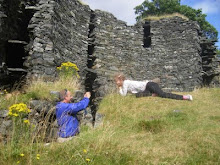
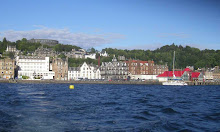
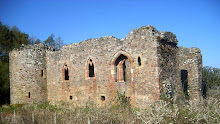
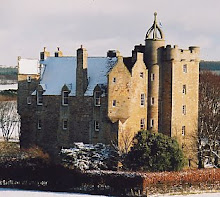
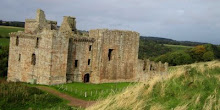

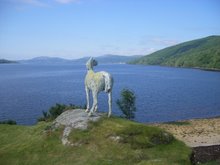

No comments:
Post a Comment